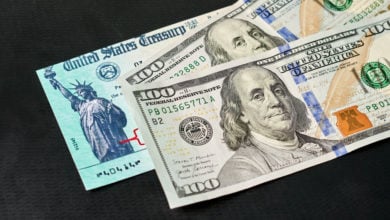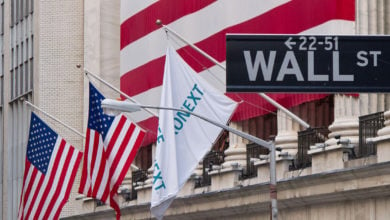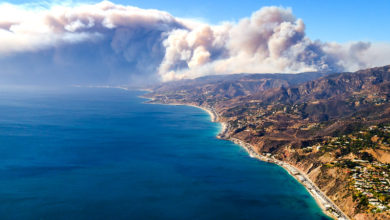For a real jaw dropper, the lead paragraph of a Dec. 10 New York Times article would be hard to beat:
“State and federal authorities decided against indicting HSBC in a money-laundering case over concerns that criminal charges could jeopardize one of the world’s largest banks and ultimately destabilize the global financial system.”
So, there it is: The big banks, no matter how blatant their crimes, must be protected. They and their executives are free to steal, defraud and loot without fear of facing prison time.
Despite massive evidence that HSBC had been operating as a criminal enterprise, the Department of “Justice” opted for another slap-on-the-wrist fine.
Not that this is anything really new. Since their wild and often fraudulent schemes led to the bank crash and public bailout in 2008—and helped trigger the “Great Recession”—not one Wall Street bank executive has faced criminal prosecution for their crimes.
In lieu of any of their present or former executives being prosecuted, HSBC has admitted its guilt and agreed to pay $1.9 billion. That might sound like a lot of money but consider that the federal Office of the Comptroller of the Currency found that HSBC had $60 trillion in potentially illegal transactions in 2010.
Despite its own 2010 finding, the OCC, which is supposedly a bank regulator, did not even fine HSBC at that time.
The real drug kingpins
While it appears that a small percentage of the charges against HSBC have to do with countries under sanctions by the U.S., including Iran and Cuba, a huge part of the laundered money came from the drug trade.
HSBC is not unique in this especially profitable form of money laundering. As the Party for Socialism and Liberation pamphlet “The Myth of Democracy and the Rule of the Banks” documents, Wachovia Bank laundered $378 billion in Mexican drug cartel proceeds between 2004-07.
In a 2010 settlement, Wells-Fargo, which had taken over Wachovia in 2008, agreed to a settlement of $160 million with the government. And, as in the HSBC case, there were no criminal prosecutions of Wachovia executives.
“Martin Woods, the director of Wachovia’s anti-money laundering unit quit the bank after Wachovia executives repeatedly ignored his documentation of drug dealers laundering funds through the bank. Woods told Bloomberg: ‘It’s the banks laundering money for the cartels that finances the tragedy [in Mexico.’” (The Myth of Democracy and the Rule of the Bank, p. 17)
Large-scale drug trafficking is impossible without the kind of large-scale money laundering that only the big banks can facilitate. In the Wachovia case: “The cartels used laundered money funneled through a ‘legitimate’ bank to buy large planes for the transport of hundreds of millions of dollars worth of cocaine.”
The DOJ charged that the Sinaloa cartel of Mexico and the Norte del Valle cartel from Colombia laundered $881 million through HSBC’s U.S. affiliate. But that’s just the start.
The Mexican affiliate of HSBC “transported $7 billion in physical U.S. dollars to HBUS [HSBC’s U.S. affiliate] from 2007 to 2008, outstripping other Mexican banks, even one twice its size.” (Majority Media report on Senate hearing, July 16, 2012)
In order to facilitate much larger drug money laundering, HSBC ranked Mexico as having “standard” risk, the lowest of four categories, and between 2006-2009 assigned only one or two compliance officers. In 2007 it froze staffing in its anti-money laundering department to “cut costs and increase the bank’s return on equity.” (Market Watch, Dec. 11, 2012)
The ranking and lack of staffing allowed unmonitored wire transfers from Mexico of $670 billion between 2006 and 2009 alone.
In those same years, according to the DOJ, HSBC carried out over $200 trillion in unmonitored wire transfers from countries that HSBC considered to be of “standard” or “medium” risk, collecting hefty fees all along the way.
Money laundering is far from the only crimes of the banks and HSBC is far from being the only culprit. Goldman Sachs, Morgan Stanley, Bank of America, JP Morgan Chase, Citigroup and more have been charged on numerous occasions with fraud. But invariably the charges are civil, not criminal. The banks pay a fine and promise to “never do it again.”
A 2011 analysis of such cases showed just what those promises were worth. Over 15 years, there were at least 51 cases in which 19 Wall Street firms had broken the same anti-fraud laws they had agreed never again to violate. (NYT, Nov. 7, 2011, quoted in “Myth of Democracy,” p. 21)
The HSBC case reaffirms two fundamental truth about contemporary capitalist society: 1) While the government and its repressive apparatus rules over the people, the banks rule over the government.; 2) It can’t be reformed—the great wealth of society must be taken out of the hands of the biggest criminals, the bankers, and used to meet the needs of the people.






